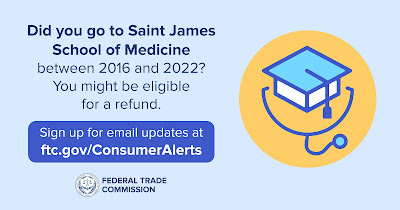On November 17, the U.S. Department of Education and the Department of Justice issued a 15-page document titled "Guidelines For Department Attorneys Regarding Student Loan Bankruptcy Litigation."
According to the memo, these guidelines aim "to enhance consistency and equity in the handling of [student-loan] bankruptcy cases."
These guidelines are bullshit and won't do anything to change the way DOE and its collection agencies respond to student debtors who file for bankruptcy relief.
Why do I think these guidelines are bullshit? Three reasons:
First, the policies are not signed. Nor do they appear on government letterhead. It's not clear who's responsible for drafting this murky document. I don't think anyone wants to be associated with it. That's a bad sign.
Second, DOE didn't honor the guidelines it issued in 2015, so it probably won't follow the new guidelines. Instead, I predict that DOE will continue to oppose almost all student-loan bankruptcies.
Here's a little background information. In July 2015, Deputy Assistant Secretary Lynn Mahaffie released a letter advising DOE lawyers and debt collectors not to oppose bankruptcy if it didn't make economic sense to do so.
That letter had zero effect on DOE's policy to oppose bankruptcy relief for nearly every student debtor.
For example, in Abney v. U.S. Department of Education, which was decided after Mahaffie's letter was issued, DOE opposed a bankruptcy discharge for a man living on less than $1200 a month and who rode a bicycle to work because he couldn't afford a car. This poor guy was making child-support payments that almost equaled his take-home pay and had lost his home to foreclosure. In fact, this man's situation was so desperate that he lived in the cab of one of his employer's trucks for a time. And DOE demanded that he be put on a 25-year repayment plan!
To this day, DOE fights bankruptcy relief for almost every student borrower, no matter how desperate the circumstances. And Mahaffie's letter has apparently been withdrawn because the link to that letter is no longer operable.
Third, the new guidelines allow DOE lawyers to agree to the partial discharge of student loans in bankruptcy but only "[w]here appropriate and permissible under governing case law."
Although the guidelines cited some case law about partial discharges, they didn't mention four recent bankruptcy decisions in which judges issued partial releases over DOE's (or its debt collectors') opposition.
In Murray v. Educational Credit Management Corporation (ECMC), Kansas Bankruptcy Judge Dale Somers approved a partial discharge of student debt owed by Alan and Catherine Murray. ECMC, DOE's contracted debt collector, opposed the ruling and appealed. Acting as an appellate judge, a federal district court upheld Judge Somers' decision.
Later, Kansas Bankruptcy Judge Robert Nugent approved a partial discharge of student loans owed by Vicky Metz over ECMC's objection. ECMC appealed this ruling, just as it had appealed in the Murray case. ECMC lost again when Judge Nugent's opinion was upheld on appeal.
Despite losing two partial student-loan discharge cases in Kansas, ECMC opposed a partial discharge a third time in the same jurisdiction. In ECMC v. Goodvin, ECM lost again, appealed again, and lost the third appeal.
Did DOE and ECMC get the message about partial student-loan discharges in Kansas? No. In Loyle v. DOE and ECMC, decided just nine months ago, the Department and ECMC opposed a partial student-loan discharge sought by Paris and Katherine Loyle. For the fourth time in the same jurisdiction, ECMC and DOE lost their case.
If DOE and DOJ are serious about approving partial discharges, why didn't the Guidelines cite these four important cases? I'll tell you why. DOE and DOJ don't really want student debtors to get relief in the bankruptcy courts--even partial relief.
I encourage you to download and print these new guidelines. You can put this gobbledygook on your bedside table if you have trouble sleeping.
Better yet, keep the Guidelines in your bathroom. We have a paper shortage; you can always use this disingenuous blather for toilet paper.
References
In re Murray, 563 B.R. 52 (Bankr. D. Kan. 2016); aff'd sub nom, Educational Credit Management Corporation v. Murray, No. 16-2838, 2017 WL 4222980 (D. Kan. Sept. 22, 2017).
In re Metz, 589 B.R. 750 (Bankr. D. Kan. 2018), aff'd, Educational Credit Management Corporation v. Metz, Case No. 18-1281-JWB (D. Kan. May 2, 2019).
Educational Credit Management Corporation v. Goodwin, Case No. 20-cv-1247-JWL, 2021 WL 1026801 (D. Kan, March 17, 2021)
Loyle v. U.S. Department of Education and ECMC, Case No. 19-10065 Adv. No. 20-50732021 WL 1026801 (Bankr. D. Kan. Feb. 24, 2022).












